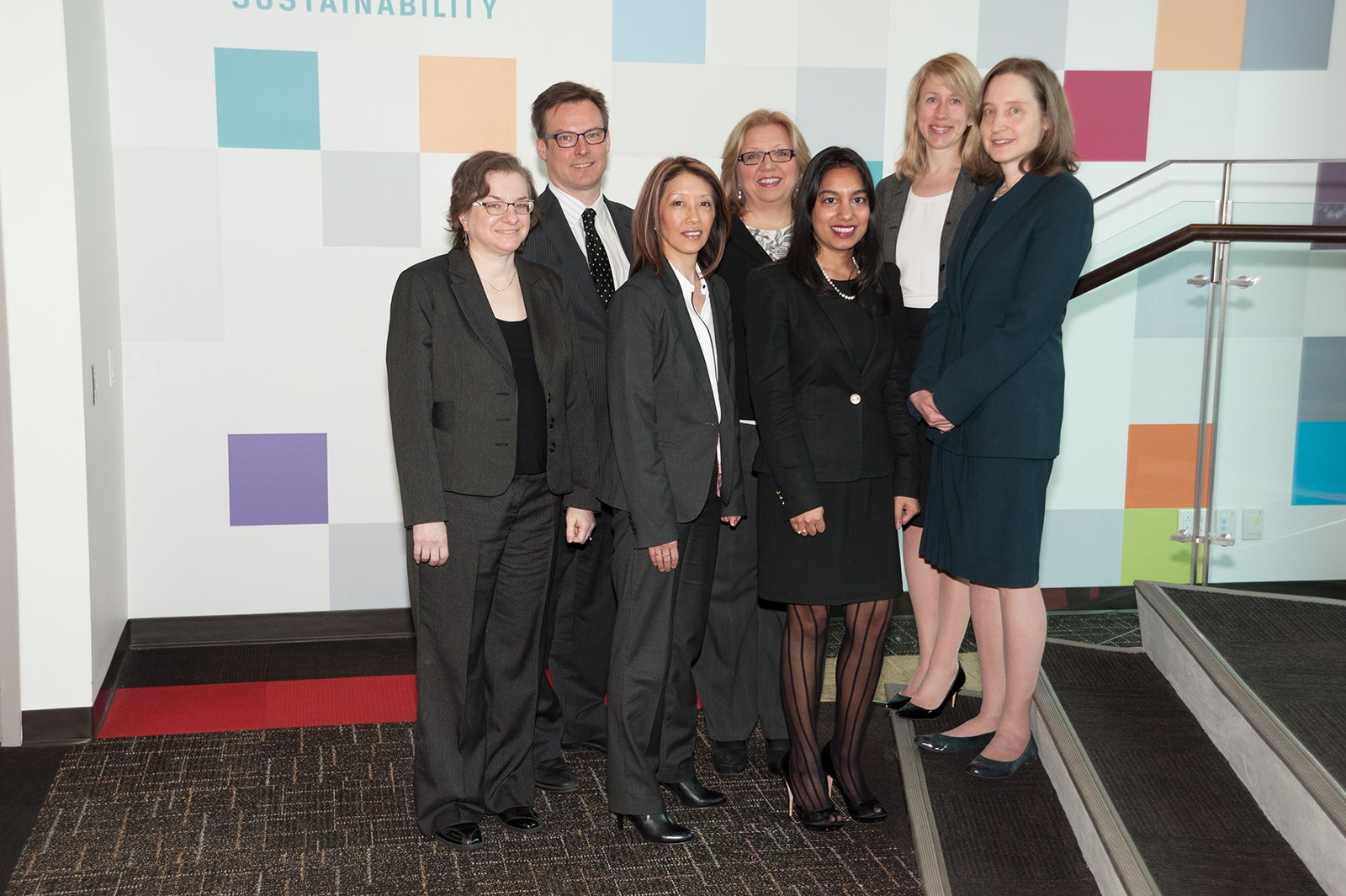Aligning with the Enterprise
By Jennifer J. Salopek
When CSA Group, an engineering professional services firm, hired a new president in 2009, he was interested in developing management capacity and bench strength; and invested in leadership skills development for many of the senior staff. Ellen Pekilis, then in her 10th year in CSA's legal department, had two key realizations after that training: "That the legal department is not here to practice law or even risk management, but to achieve CSA's organizational objectives through the application of our own skill sets; and that I am less a lawyer than a manager who went to law school. It is my responsibility to connect the huge list of tasks that we do in the legal department with what the company is trying to do.
"Thus began Pekilis' value journey on behalf of CSA Group, a 95-year-old company headquartered in Toronto, Ontario, she describes as operating with a process flow mindset. In the legal department, processes were completely uncontrolled, and there was no legal line of sight. "I spent my first five years in the department on tactical stuff like issues and systems," Pekilis says.
In February 2012, upon becoming general counsel, she met with the president one-on-one. "I asked him, 'What key goals do you have for me?'" He had three: align the legal department with corporate strategy, manage costs and lead people effectively. Wondering how to connect her six-person department with the company in a proactive way, Pekilis turned to several ACC resources, including the ACC publication Law Department Strategy: Balancing Immediate Cost Savings with Sustainable Results, and a Docket article on meeting the business needs of a global organization.
"The ACC resources were really reassuring. They gave me the sense that I didn't have to reinvent the wheel, and the Docket article was a crystal-clear roadmap," Pekilis says.
Through a series of monthly half-day meetings, Pekilis and her staff went through the corporate business plan line by line, identifying the legal work necessary to enable each line item in the plan, then grouping tasks by theme or type of legal skill required. "It was a whole different way to talk about what we did," she says.
Next, the group evaluated the emerging themes according to the Value Matrix outlined in the ACC resource, evaluating each on the basis of opportunity and risk and assigning it to a quadrant on the matrix. "The quadrants helped us identify the highest-value tasks for focus by in-house counsel; those in the middle range which were best handled by in-house counsel managing external resources; and those that were best managed by seeking other delivery methods that required less hands-on legal time," Pekilis explains. "Those high-opportunity activities are game changers in terms of CSA's business model and where we get the most bang for the buck."
To focus time away from lower-value tasks, the legal team conducted an aggressive, proactive staff training program, and developed templates and guidance tipsheets to permit more self-management on the business side. To handle routine commercial and employment work from CSA's German operations, Pekilis negotiated a flat-fee arrangement with a local German firm, resulting in a 30 to 50 percent reduction in fees. She also uses a third-party vendor of investigative services to reduce the cost of responding to code of conduct inquiries by 90 percent.
The detailed analysis of the business plan also highlighted future demands for immigration services, which has permitted the legal department to accurately predict the fees for the current fiscal year and to engage the business units in a discussion about managing the process and related cost control opportunities.
Sarah Eisen; Michael Carey; Jeannie Picard; Veronica Steele; Aliya Ramji; Kathryn Yung; Ellen Pekilis
That left a legal staff focused on high-priority items like compliance, acquisitions and enterprise risk management that are tied to bonusable business objectives. "We went from a small department with uncontrolled incoming flow to a high-performing group of people who perform more complex, challenging tasks," Pekilis says. "The projects are more rewarding and cross-functional, and the legal staff is more engaged."
It was the staff, in fact, who suggested Pekilis enter this year's ACC Value Challenge competition.
"It made me feel proud and touched, to realized how much they had embraced this project," she says.
Pekilis is measuring her success by more than cost reductions. A recent legal department customer service survey showed that the department continues to receive high marks for service quality, while scores for timeliness and understanding of the business have gone way up.

